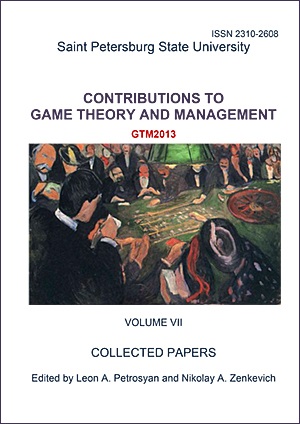Power in Game Theory
Abstract
The main aim of this paper is to discuss power in game theory, in order to model the asymmetries of forces among the players of the game. The starting point is that games are strategic interactions between rational individuals in a social environment, and the players do not have equal forces. Game theory has increased greatly in recent years, including several new branches. However, the concept of power in game theory has not been explored to any great extent. Indeed, power is a broad concept that has no clear definition. This paper formalizes a model, taking account the asymmetric forces between players. Examples are given, using some well-known games, to illustrate this relation involving power. As a result, this paper presents an approach in two still distant scientific fields: sociology and game theory.
Downloads
References
Downloads
Published
How to Cite
Issue
Section
License
Articles of "Contributions to Game Theory and Management" are open access distributed under the terms of the License Agreement with Saint Petersburg State University, which permits to the authors unrestricted distribution and self-archiving free of charge.




